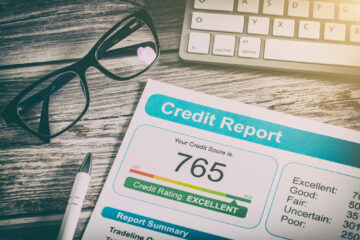How Do Personal Loans Work And How to Qualify
In the first quarter of 2018, personal loan debt stood at $120 billion. Such high figures raise the question “how do personal loans work and why are people in so much debt?” Personal loans come in handy for people who have a specific need but are short of cash.
The attractiveness of personal loans is the ease with which they are processed. Many non-traditional banking lenders are flexible in extending loans to people with bad credit scores. Different people seek these loans for various purposes, including paying for unexpected expenses.
Before you apply for a personal loan, it’s crucial to understand “how do personal loans work?” You might find that they work better for you than other types of loans. Keep your options open though, as they may not be the best for you.
What’s a Personal Loan?
Personal loans are credit facilities extended to you to meet a financial need. Your lender will want to know what you need the money for. However, how you use it is not much of a problem, for as long it’s legal and responsible use.
Personal loans usually have no collateral, meaning it’s unsecured. For this reason, most lenders will charge a higher interest rate on personal loans. However, if you’d like to pay lower interest rates, consider looking for secured personal loans.
How Do Personal Loans Work?
You can obtain a personal loan from a bank, credit union, or through online companies. You can use a personal loan to consolidate debt, cater for an emergency, or make home improvements. The terms of a personal loan are as follows:
I). Fixed Repayment Term
The period of repayment will vary from one lender to another. The period could be as short as thirty days. Other lenders will extend the repayment for several months. They’ll expect you to make monthly payments until the loan is fully repaid.
Should you be unable to meet your repayment obligations, some lenders charge some penalties. Others charge pre-payment penalties. Check for all this before you accept a personal loan.
II). Interest Rates
It’s very crucial to note that unsecured personal loans attract a higher interest rate than all others. You’ll primarily be subject to high interests if you have a poor credit rating. Compare different rates from different lenders before signing up for a loan.
Generally, the rates range from 5% to 36% depending on the lender in question.
III). Origination Fees
Some lenders will charge you a fee for processing the loan. The amount ranges from 1 to 6% of the amount of the credit. Some will charge it up front while others will incorporate it in your monthly repayments.
When Should You Get a Personal Loan?
While you’re still thinking “how do personal loans work,” you need to consider if they’re for you. You need to be sure whether a personal loan will benefit or hurt you. Here are indicators that you’re ready for it.
1. The Loan Has Fixed Interest and Monthly Repayment
A personal loan comes with the benefit of offering a fixed repayment schedule. The interest rates are also well determined at the start. This means that you and the lender can agree on a set monthly repayment amount in advance.
You can rest assured that you won’t get surprising amounts due at any one time.
2. You Need Money You Can Pay Over Time
Personal loans can cater for a variety of expenses. They’re hence suited for people with large expenses they’d like to pay over time. Personal loans can be repaid over many years.
Depending on your creditworthiness, you can qualify for up to $35,000.With a good credit score, the interest rate can be as little as 3%. When you do your calculation, you’ll see that you’ll only part with a small amount of money each month.
3. You Can Afford the Monthly Repayments
Before you engage a lender, get your calculations right. Qualifying for a loan doesn’t always amount to being able to afford it. Start by figuring out the monthly repayments for the amount you intend to apply for.
Don’t forget to factor in the interest rates once you get the figures. You can then budget to see if the loan will overstretch your finances. If it does, it’s probably an indicator that the credit isn’t for you.
4. You’ve Got a Good Credit Score
If your creditworthiness is pleasing to the lenders, you qualify for a loan with low interest rates. Most personal loan lenders will still give you a loan if you’ve got poor scores. However, this will be more costly for you.
If your credit score is low, you may want to put off taking a personal loan until you’ve boosted your rating. One way to build your score is to update all your overdue bills and strive to make all other payments on time. Paying down your credit cards can also help improve your rating.
How to Qualify for a Personal Loan
Lenders are often taking a risk in lending you a personal loan because they don’t ask for collateral. As such, they want to be sure that you’re capable of making repayments. One way they check your capability is through your credit score.
The higher it is, the higher your chances of being considered for a loan. In New Zealand, the credit score ranges from 0 to 1000. A score below 600 is an indicator of poor borrowing habits.
A poor score might disqualify you from getting a personal loan. If you do get one, be ready to be slapped with very high interest rates.
The other factor lenders will consider is your debt-to-income ratio. Different lenders use different standards for the ratio. However, most of them want your debts to consume less than 43% of your monthly income.
Final Thoughts
At one time or another, you might require quick cash. Your only option might be to apply for a personal loan. In such circumstances, first, take the time to understand the question, “how do personal loans work?”
Much goes into applying for a personal loan. Most of them are unsecured. Lenders hence charge high interest as a way of shielding themselves in the event you don’t repay.
Also, check the repayment period to see if you can afford to repayment amounts. Read the more delicate details to see the additional charges the loan attracts. If your credit score is poor, avoid personal loans and work on rebuilding the score first.
If you have any questions, be sure to contact us for help.


